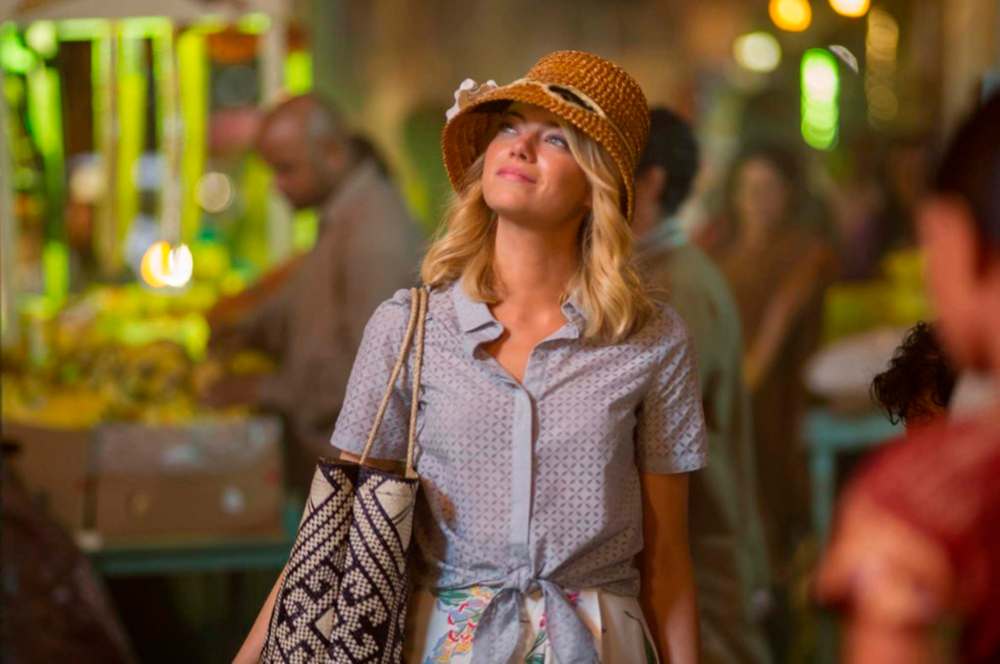Stars take to Twitter to protest ‘yellowface’
White actors playing Asians a pervasive, ongoing practice
Advertisement
Read this article for free:
or
Already have an account? Log in here »
To continue reading, please subscribe:
Monthly Digital Subscription
$1 per week for 24 weeks*
- Enjoy unlimited reading on winnipegfreepress.com
- Read the E-Edition, our digital replica newspaper
- Access News Break, our award-winning app
- Play interactive puzzles
*Billed as $4.00 plus GST every four weeks. After 24 weeks, price increases to the regular rate of $19.00 plus GST every four weeks. Offer available to new and qualified returning subscribers only. Cancel any time.
Monthly Digital Subscription
$4.75/week*
- Enjoy unlimited reading on winnipegfreepress.com
- Read the E-Edition, our digital replica newspaper
- Access News Break, our award-winning app
- Play interactive puzzles
*Billed as $19 plus GST every four weeks. Cancel any time.
To continue reading, please subscribe:
Add Winnipeg Free Press access to your Brandon Sun subscription for only
$1 for the first 4 weeks*
*$1 will be added to your next bill. After your 4 weeks access is complete your rate will increase by $0.00 a X percent off the regular rate.
Read unlimited articles for free today:
or
Already have an account? Log in here »
Hey there, time traveller!
This article was published 06/05/2016 (3433 days ago), so information in it may no longer be current.
Hollywood’s having a rough PR week in the Asian-American community as celebrities such as Margaret Cho and George Takei protest high-profile castings in Marvel and Paramount films.
On Saturday, actor Takei publicly took issue with white actress Tilda Swinton being cast as the Ancient One in the adaptation of the Doctor Strange comic. In the books, the character is of Tibetan origin. After a backlash, a Marvel Studios spokesperson defended the casting in a statement to Mashable reading, in part: “The Ancient One is a title that is not exclusively held by any one character, but rather a moniker passed down through time, and in this particular film the embodiment is Celtic.”
Takei was not impressed.

“This backpedalling is nearly as cringeworthy as the casting. Marvel must think we’re all idiots,” Takei wrote on Facebook.
He’s not the only one who feels this way, in general. During a conversation with Asian-American actresses Joan Chen, Ming-Na Wen and Lynn Chen, actress Constance Wu spoke out against Scarlett Johansson’s casting as Major Motoko Kusanagi in the upcoming Ghost in the Shell.
“It was particularly heinous because they ran CGI tests to make her look more Asian,” Wu said, referring to reports, denied by Paramount, that the studio altered her appearance, according to the Hollywood Reporter. “Some people call it ‘yellowface,’ but I say ‘the practice of blackface employed on Asians,’ because that’s more evocative.”
In December, comedian Cho criticized Absolutely Famous: The Movie for including “yellowface,” which refers to the act of white actors portraying Asian characters.
Tuesday morning, Cho led a discussion on Twitter about the “lack of representation for Asian-American communities” in film to kick off a month-long Twitter “campaign against whitewashing.”
The hashtag #whitewashedOUT is being used to criticize several recent casting choices in which white actors portray Asian characters. She spent the discussion both responding to critics (and trolls) and making incisive criticisms of Hollywood.
This sort of casting has a long history in Hollywood.
In 1919, white actor Richard Barthelmess portrayed a Chinese character named Cheng Huan. The movie was calledBroken Blossoms but, tellingly, its alternative title was The Yellow Man and the Girl.
This didn’t only happen in films with actors that may not be known in the mainstream. Katharine Hepburn portrayed a Japanese woman named Jade Tan in 1944’s Dragon Seed.
Genghis Khan in 1956’s The Conqueror was portrayed by none other than John Wayne, a man who has been accused of being so racist, California lawmakers recently rejected a proposal to dedicate a day to celebrating the actor.
This list wouldn’t be complete without what is likely the most famous of all instances of yellowface: Mickey Rooney, with buck teeth, narrow eyes and that painful accent, portraying the character — nay, the caricature — of the Japanese Mr. I.Y. Yunioshi in Breakfast at Tiffany’s in 1961. The Wall Street Journal proclaimed Yunioshi the “godfather of the ‘Ching-Chong’ stereotype that continues to rear its yellow head today.”
Before his death, Rooney said he wouldn’t have done the role if he’d known how many it would offend.
This list could continue for days. And as Cho and Takei want moviegoers to know, it still happens today.
Last year, Cameron Crowe released the film Aloha to a disastrous reception from critics. Among its cornucopia of flaws was the white Emma Stone portraying an Asian-American woman named Allison Ng.
Predictably, there was outrage.
“Accepting Emma Stone as an Asian-American in Aloha requires a certain suspension of disbelief and no small amount of magical thinking,” wrote Entertainment Weekly.
Crowe has since apologized on his blog, writing: “I have heard your words and your disappointment, and I offer you a heartfelt apology to all who felt this was an odd or misguided casting choice.”
He went on to say the crux of the character was specifically that she didn’t look like Ng, but the damage was done. The movie opened to a disappointingly low US$10 million at the box office, Variety reported.
It’s hard to imagine Marvel will face the same challenges Crowe did. After all, The Avengers grossed US$1.5 billion worldwide ($623.4 million in the U.S.), Marketwatch reported.
Even so, the hashtag #whitewashedOUT continues to trend on Twitter as non-celebrity users support the month-long campaign.
— Washington Post


